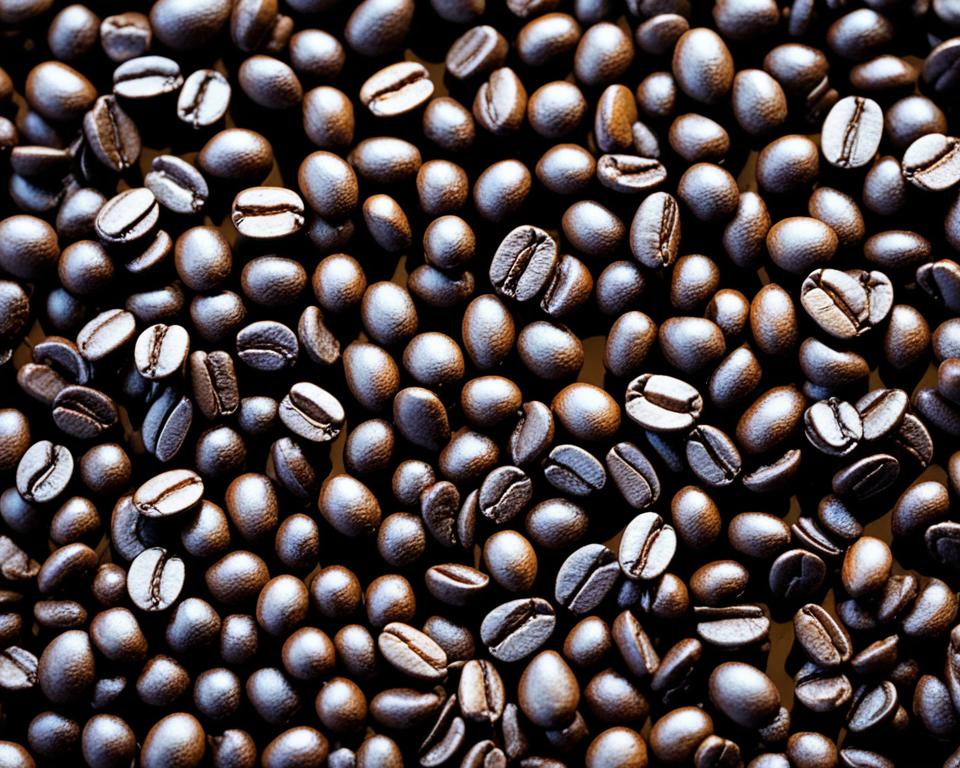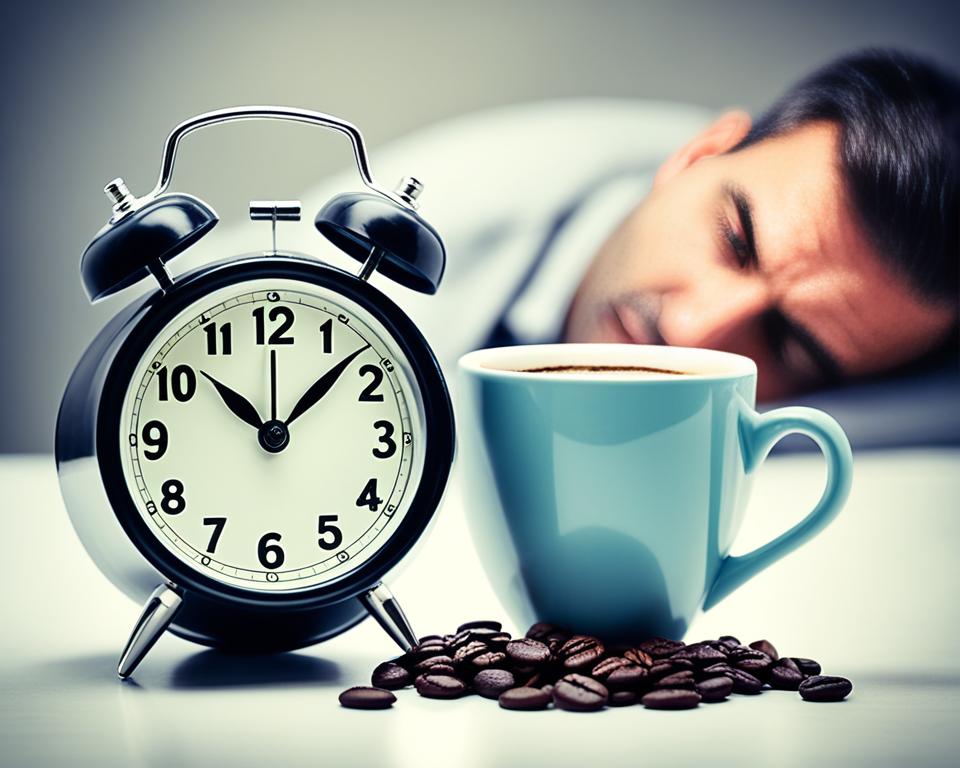Have you ever wondered, “Will Decaffeinated Coffee Keep You awake?” It seems counterintuitive, right? After all, we turn to decaf to cut down on caffeine.
So, what’s the real story behind the effects of decaf coffee on our sleep?
Many coffee lovers switch to decaf, expecting restful nights. But is that always the outcome? In this article, we’ll dive into the surprising truths about decaffeinated coffee and its impact on sleep. From understanding how much caffeine is really in your decaf to deciphering if it can still keep you awake, we’ve got you covered.
Let’s explore this together!
Understanding Decaf Coffee
Have you ever wondered what decaf coffee is all about? As someone who enjoys coffee, I can relate. Decaf coffee offers the rich, delicious flavors of regular coffee but with much less caffeine.
The journey of decaf coffee begins with the decaffeination process. This intricate process involves several steps designed to reduce the caffeine content in coffee beans. Despite the effort, it’s worth noting that no method can promise 100% caffeine removal.
Three main methods make up the decaf coffee production landscape:
- Solvent-Based Process: This involves using chemicals like methylene chloride or ethyl acetate to soak the beans and dissolve the caffeine.
- Swiss Water Process: A chemical-free technique where hot water and osmosis eliminate caffeine.
- The carbon dioxide process involves using liquefied CO2 to attract and extract caffeine molecules from the beans.
By using these methods, coffee producers can ensure a substantial reduction in caffeine, leaving you with a brew that’s easier on your nerves and your sleep patterns.
However, don’t expect decaf coffee to be completely free of caffeine; it usually retains a small percentage.

Understanding how decaf coffee is made can bring peace of mind. The commitment to quality in the decaf coffee production process showcases the care taken to provide a balanced, enjoyable coffee experience with minimal caffeine.
Now, you can confidently sip your decaf, knowing a lot went into creating that perfect cup.
How Much Caffeine Is in Decaf Coffee?
When discussing decaf vs regular coffee, it’s critical to understand the variance in caffeine content between the two. Regular coffee typically contains about 95 milligrams of caffeine per 8-ounce cup, whereas decaf coffee, despite its name, isn’t entirely free of caffeine.
It usually holds around 2 to 5 milligrams per cup.
Comparing Caffeine Levels
Caffeine content can vary depending on the brand and brewing method. For instance, brands like Starbucks have been known to have slightly higher caffeine levels, even in their decaf options.
Comparing the caffeine content helps us decide on our preferred choice between decaf vs regular coffee. It’s fascinating how something seemingly straightforward can have such a wide range of factors at play!
Interestingly, the process of decaffeination can also impact the caffeine levels in decaf coffee. The method used—whether it’s the Swiss Water Process, organic solvents, or carbon dioxide—can result in slight differences in the residual caffeine content.
Is the Caffeine Level Safe?
The big question always boils down to safety. You might wonder if these residual caffeine levels are safe to consume. According to health guidelines, the caffeine safe limit for most adults is roughly 400 milligrams per day. This means that even if you enjoy multiple cups of decaf coffee, you’re well within the caffeine-safe limit.
For individuals sensitive to caffeine or those aiming for minimal intake, choosing organic decaf coffee can provide added peace of mind. Organic options, as detailed here, often have added health benefits due to sustainable farming practices.
Remember, everyone has different tolerances, so it’s essential to monitor how decaf coffee affects you personally. With the information available, you can make informed decisions that support both your health and the environment.
Will Decaffeinated Coffee Keep You Awake?
Many of us enjoy a warm cup of coffee without worrying about a sleepless night. But does decaf coffee really safeguard against insomnia?
Caffeine Sensitivity
Everyone processes caffeine differently. For some, even a small amount of decaf can be enough to impact sleep quality. This is due to caffeine sensitivity effects, which vary widely among individuals.
Evidence shows that while the caffeine in decaf coffee is minimal, people with high caffeine sensitivity might still experience alertness and decaf coffee insomnia.
Anecdotally, I know friends who avoid decaf in fear of sleeplessness. Surprisingly, even decaf can affect our body’s internal clock, disrupting sleep timing.
It’s worth noting that studies reveal a range of responses to caffeine’s impact on sleep quality. If you’re experiencing sleep issues, it might be time to reconsider even decaf coffee choices, especially late in the day.
Benefits and Drawbacks of Decaf Coffee
When considering decaf coffee, it’s important to weigh both its advantages and possible side effects. While many enjoy decaf for its reduced caffeine content, there are both positives and negatives to consider.
Health Benefits
One of the key health advantages of decaf is its lower caffeine content, which can reduce anxiety for some people. I’ve found that switching to decaf has improved my own sleep quality.
Additionally, many decaf options retain significant antioxidant content, which supports overall health.
Another benefit is better digestive health. Lower caffeine levels can be gentler on your stomach, reducing acid reflux and other digestive issues. If you’re sensitive to caffeine but still love the coffee flavor, decaf is a great option.
Potential Drawbacks
However, there are potential drawbacks to be aware of. Some decaf coffee side effects stem from the decaffeination process itself. Certain methods use chemicals that might leave residues, which can be concerning.
Additionally, decaf lacks the natural stimulant effect that many seek from coffee. For those who rely on that morning caffeine jolt, decaf might not deliver the same kick, potentially impacting energy levels throughout the day.
In my experience, finding a quality brand that uses the Swiss Water Process can mitigate concerns about chemical residues, but it is crucial to do your research. Balancing the health advantages of decaf with these potential side effects can help you make a more informed choice.
Does Decaffeinated Coffee Break a Fast and Affect Sleep Patterns?
Decaffeinated coffee can be a soothing option during fasting, as it typically contains minimal calories and doesn’t significantly impact insulin levels. However, understanding the role of coffee in fasting is crucial, as it may still affect sleep patterns due to its potential residual caffeine content, complicating rest for some individuals.
Conclusion
As we’ve explored, the question of whether decaf coffee will keep you awake comes down to several factors. First, even though decaf does have some caffeine, it’s significantly less than its regular counterpart.
For those with high caffeine sensitivity, that small amount might still have an impact, but generally, it’s not enough to disrupt sleep for most people.
Throughout the article, we’ve delved into understanding decaf coffee and its caffeine content, noting that it’s a safe option for many seeking to avoid high caffeine levels.
This brings us to one key point: making informed coffee choices can play a crucial role in achieving better sleep practices. Whether you opt for decaf or regular, knowing your body’s response to caffeine is essential.
Lastly, considering the benefits and drawbacks of decaf coffee, we’ve acknowledged that while it offers several health benefits and reduced caffeine content, it might not be entirely void of side effects for everyone.
My final thoughts on decaf are to reflect on your personal health and sleep needs, so you can enjoy your coffee without compromising your rest. Informed coffee choices lead to better sleep practices, helping you make the best decision for your lifestyle.
FAQ
What are the effects of decaf coffee on sleep?
Decaf coffee contains significantly less caffeine than regular coffee, which means it is less likely to interfere with your sleep. However, individual sensitivity to caffeine can vary, so some people might still find that even small amounts make them more alert.
How is decaf coffee made?
The decaffeination process involves removing caffeine from coffee beans. This can be done using several methods, including the Swiss Water Process, solvents, or carbon dioxide. While no process removes all caffeine, decaf coffee typically has about 97% of its caffeine content removed.
How much caffeine is in decaf coffee compared to regular coffee?
A typical cup of decaf coffee contains about 2–5 mg of caffeine, whereas a regular cup of coffee contains around 95 mg. The exact amount can vary depending on the brand and brewing method used.
Is the caffeine level in decaf coffee safe?
Yes, the caffeine level in decaf coffee is considered safe for most people. Health guidelines suggest that up to 400 mg of caffeine per day is generally safe for most adults, and the small amount in decaf coffee is well within this limit.
Can decaffeinated coffee cause insomnia?
For most people, the small amount of caffeine in decaf coffee should not cause insomnia. However, if you’re particularly sensitive to caffeine, even decaf might affect your sleep. It’s best to monitor your own response to see what works best for you.
What are the health benefits of drinking decaf coffee?
Decaf coffee can offer many of the same health benefits as regular coffee, such as antioxidants, which can help reduce inflammation and prevent some diseases. Additionally, it may reduce anxiety and digestive issues linked to a higher caffeine intake.
Are there any drawbacks to drinking decaf coffee?
Some potential drawbacks of decaf coffee include the presence of chemical residues from certain decaffeination processes, although this is less common with modern methods. Additionally, you’ll miss out on the stimulating effects of caffeine, which some people find beneficial.
Will drinking decaf coffee in the evening affect my sleep quality?
Generally, drinking decaf coffee in the evening should not significantly impact your sleep quality due to its low caffeine content. However, this can vary depending on your personal caffeine sensitivity. It’s a good idea to experiment and see how your body reacts.




